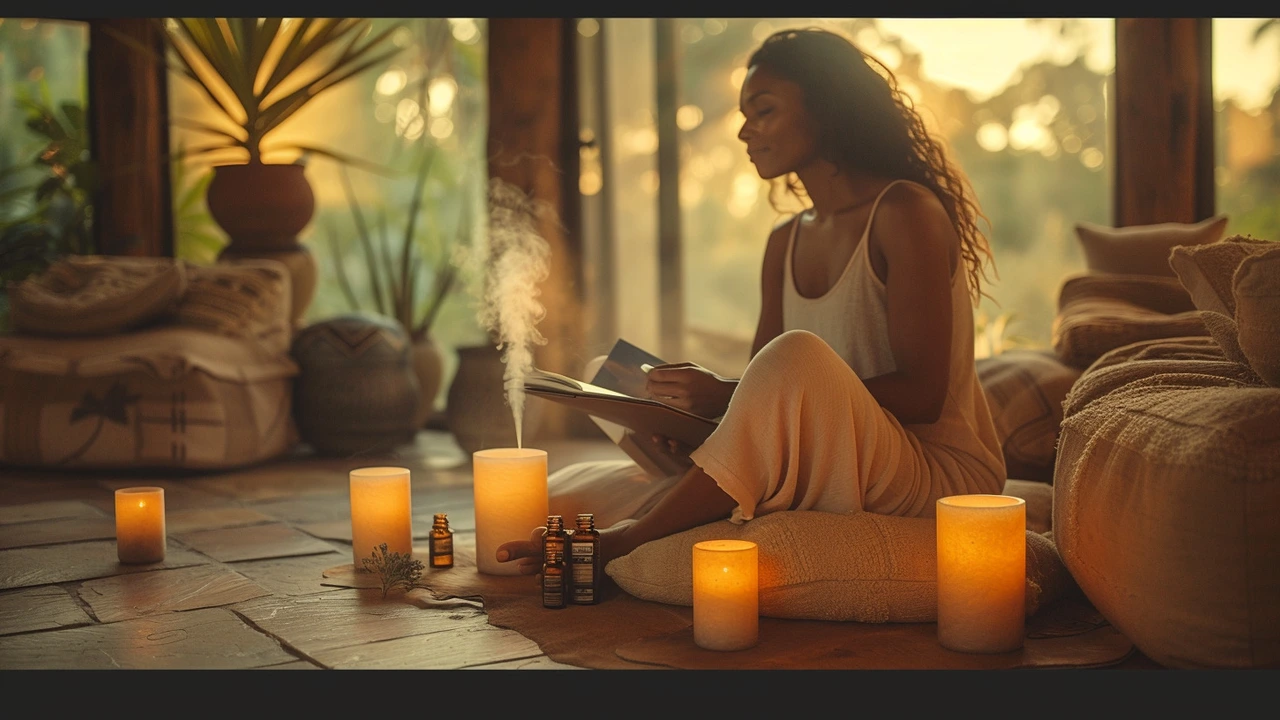Aromatherapy Massage: How Scents Help You Relax and Heal
Some smells calm your nervous system and lower pain. Aromatherapy massage pairs hands-on muscle work with essential oils to speed relaxation, ease soreness, and lift mood. You don’t need fancy gear—just the right oil, a safe dilution, and simple techniques you can use at home or with a therapist.
Which oils work best and why
Pick oils with clear benefits: lavender for calming and sleep, eucalyptus or peppermint for muscle ache and sinus relief, tea tree for skin concerns, and sweet orange or bergamot for mood lift. For pain, rosemary and marjoram are popular because they may reduce tension and improve circulation. If you want sleep or stress relief, lean on lavender, chamomile, or ylang-ylang.
Always use high-quality, pure essential oils. Cheap blends can irritate skin or cause unpredictable effects. If you’re pregnant, have epilepsy, or severe allergies, check with a healthcare pro before using any oil.
How to prepare and mix oils safely
Never apply pure essential oils directly to skin. Dilute them in a carrier oil like sweet almond, jojoba, or fractionated coconut oil. A safe starting dilution is 1% for daily use (about 6 drops per ounce/30 ml carrier) and 2-3% for short-term issues like muscle pain (12–18 drops per ounce). Do a patch test: rub a tiny mix on the inner forearm and wait 24 hours for redness or itching.
Keep the room temperate and quiet. Use soft lighting and a towel under the client. Warm the carrier oil in your hands before applying—cold oil causes the body to tighten and reduces relaxation.
For a simple at-home routine: mix 6 drops lavender + 2 drops cedarwood in 30 ml jojoba. Massage neck, shoulders, and upper back with moderate pressure, using long gliding strokes. Focus on breath: encourage slow inhales through the nose and long exhales. Ten to twenty minutes can reduce stress and ease tight muscles.
Therapists use deeper techniques—kneading, friction, and trigger point release—combined with aromatherapy for chronic tension or sports recovery. If you have chronic pain or an injury, see a licensed massage therapist who knows medical contraindications and proper techniques.
Watch for red flags: skin burns, severe headache, dizziness, or breathing problems mean stop immediately and wash the area with soap. Avoid certain oils during pregnancy (like rosemary and clary sage) and keep citrus oils away from sunlight to prevent burns.
Aromatherapy massage is a low-cost, easy-to-learn tool you can add to your self-care toolbox. Used correctly, it helps you unwind, eases aches, and gives a gentle mood boost. Start with mild blends, do a patch test, and build from there—small, safe steps get the best results.
Your Ultimate Guide to Aromatherapy Massage
Hello, lovelies! So, I've been dipping my toes into the world of aromatherapy massage and let me tell you, it's an enchanting journey of relaxation! Imagine a symphony of scents mingling with soothing touch - it's a total sensory delight! My ultimate guide covers everything from choosing tantalizing essential oils to finding the perfect massage technique for your needs. So, come join me on this fragrant adventure because, honey, we're about to make stress a thing of the past!
View More





